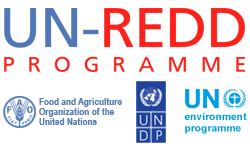
Community Participation Improves Forest Monitoring in Colombia
As custodians of the forest, the indigenous, Afro-Colombian and local communities in Colombia have been fighting deforestation through community forest monitoring, sustainable forest management and territorial planning. Since 2014, the UN-REDD Programme has been working to empower the informed participation of all these different communities in the country’s REDD+ process, knowing that community management protects forests from degradation and deforestation, while also improving the well-being of local communities.
One example is Cocomasur where a collaboration between the UN-REDD Programme, the Ministry of Environment and Sustainable Development and the Institute of Hydrology, Meteorology and Environmental Studies (IDEAM) has strengthened and built capacity among the indigenous, Afro-Colombian and local communities for community-based forest monitoring. This community-based monitoring is being increasingly recognized as an efficient tool for collecting information on forests and promoting the rights of people living in forests through active participation in decision-making processes.
According to Everildys Córdoba, Community Leader for Cocomasur, satellite images and other technology and tools from IDEAM have been useful in helping the community collect data on forest coverage and habitats. “Establishing a REDD+ project has allowed us to generate commitments with the community for caring and protecting forests,” she said.
“Monitoring is important because it allows us to verify and know what we have in the territory, so the community feels more empowered every day,” said Ferney Caicedo, the forestry team coordinator for Cocomasur. “You begin to feel the importance of taking care of the territory because our lives depend on it. This is where we have water, animals. For us, our territory is life.”
The national system of forest monitoring in Colombia has three instruments: the forest and carbon monitoring system, the national forest inventory and the national forest information system. Together, these allow the country to better understand the state of the forests using different technology, tools and information from trained forest monitors on the ground.
The UN-REDD Programme, together with FAO, has the role of bridging and facilitating dialogue between the government and communities, a collaboration that has resulted in improved forest management practices that are locally adaptable and serve as a model for Colombia and the rest of the world (link).

